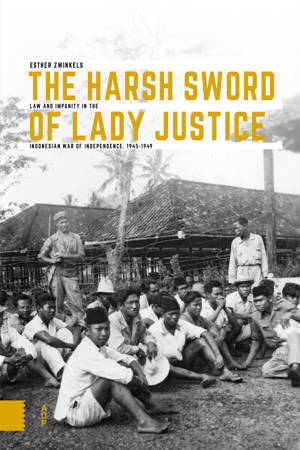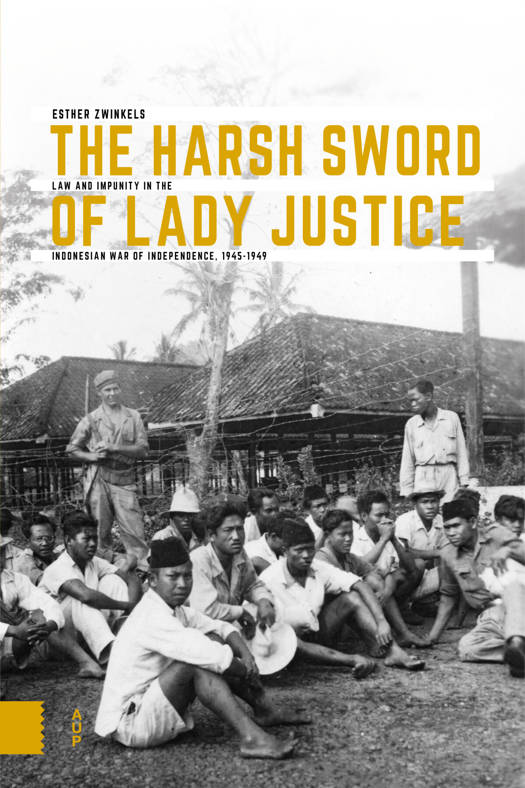
- Afhalen na 1 uur in een winkel met voorraad
- Gratis thuislevering in België vanaf € 30
- Ruim aanbod met 7 miljoen producten
- Afhalen na 1 uur in een winkel met voorraad
- Gratis thuislevering in België vanaf € 30
- Ruim aanbod met 7 miljoen producten
Zoeken
The Harsh Sword of Lady Justice
Law and Impunity in the Indonesian War of Independence, 1945-1949
Esther Zwinkels
€ 29,95
+ 59 punten
Omschrijving
During the Indonesian War of Independence, Lady Justice played an important role on the Dutch side. Soldiers were, and are, required to comply with the law and a range of rules and regulations, both in and out of combat. If they fail to do so, disciplinary action and criminal sanctions can be taken against them. But did this happen at the time? Dutch military tribunals not only tried Dutch soldiers but also Indonesians who opposed the colonial authority. How independent and objective were these courts? To what extent did the Netherlands use the law as a 'weapon of war'? Central to this book is the action taken by the Dutch military-legal apparatus in Indonesia against (alleged) cases of extreme violence, committed by their own soldiers. What kind of cases were court-martialled, which cases were not, and why? How were cases judged and what criteria were used for the Dutch and the Indonesians? And, finally, what effect did punishing or not punishing soldiers and combatants have on their willingness to use extreme violence? Based on court-martial verdicts, reports, policy documents and memoirs, The Harsh Sword of Lady Justice answers these compelling questions.
Specificaties
Betrokkenen
- Auteur(s):
- Uitgeverij:
Inhoud
- Aantal bladzijden:
- 272
- Taal:
- Engels
- Reeks:
Eigenschappen
- Productcode (EAN):
- 9789463727488
- Verschijningsdatum:
- 1/04/2025
- Uitvoering:
- Paperback
- Formaat:
- Trade paperback (VS)
- Afmetingen:
- 156 mm x 235 mm

Alleen bij Standaard Boekhandel
+ 59 punten op je klantenkaart van Standaard Boekhandel
Beoordelingen
We publiceren alleen reviews die voldoen aan de voorwaarden voor reviews. Bekijk onze voorwaarden voor reviews.











